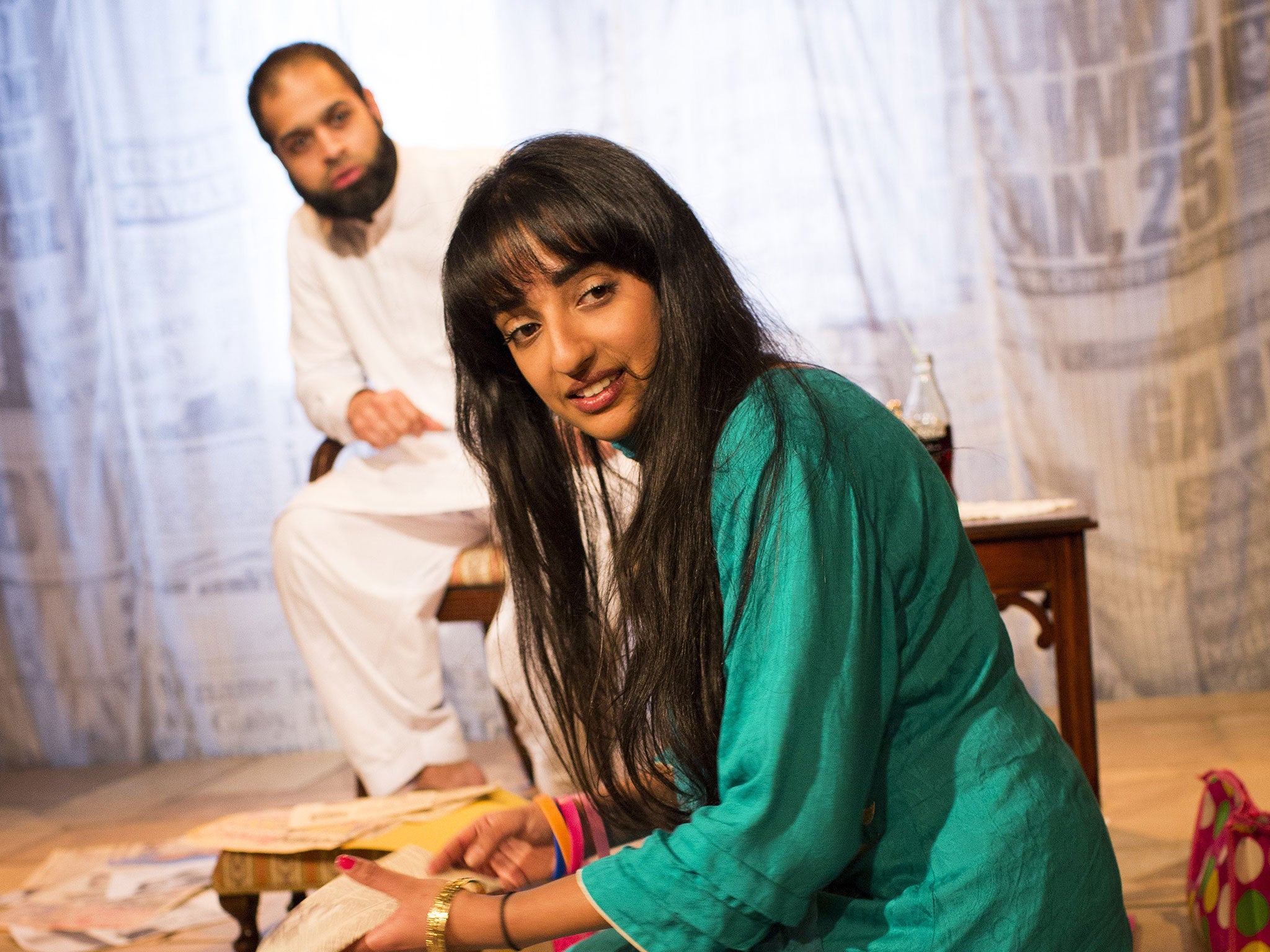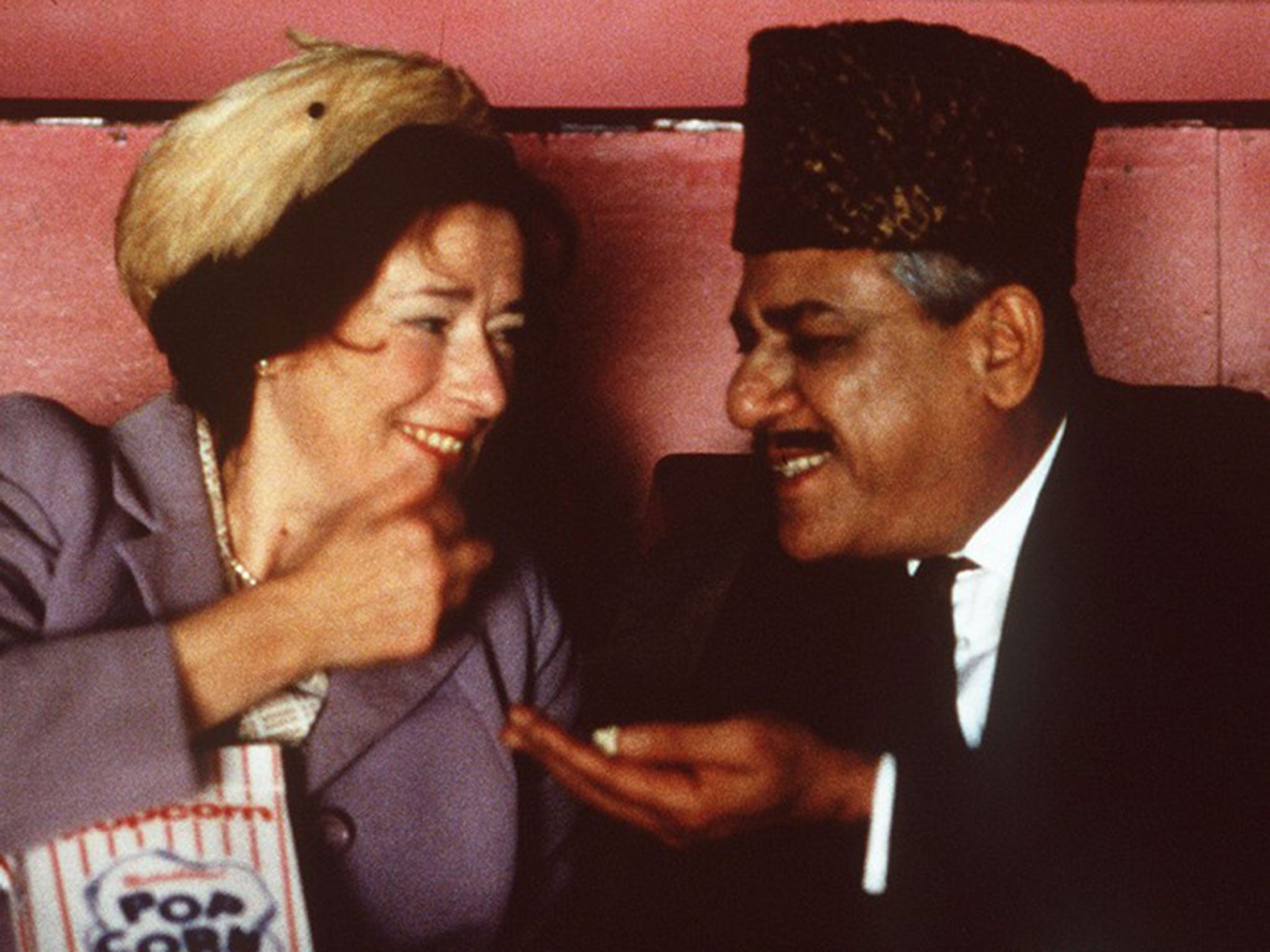Tamasha Theatre's My Name Is... sheds light on devastating fall-out from mixed-race marriage
Ahead of its tour of the UK, Yasmin Alibhai-Brown salutes a company that lifts the veil on multiracial Britain

My Name Is... by Tamasha has been among my top five plays this year. It had a short first run at the Arcola theatre, then went to Glasgow and begins a national tour this September. Being in a space which was no bigger than an ordinary living room was both intimate and claustrophobic, and also menacing. At moments of high drama, you felt the walls would collapse and gales would carry away the players. Which is, in a manner of speaking, what happened to the family whose story is told here, in their own words.
In August 2006, 12-year-old Molly Campbell, a mixed-race schoolgirl "disappeared" from Stornaway, in the Outer Hebrides. Her father, British-Pakistani Sajad Rana, who was divorced from her mother, Louise Campbell, had moved back to Pakistan with his older children and wanted Molly to join them. Louise was terrified she would lose her remaining child. When her daughter didn't come back home, she feared Rana had abducted her and called the police. Louise's mother publicly said Rana was plotting to marry off the child, adding further piquancy to the rising public outrage about Asian "barbarism". And then came the startling/shocking finale. At a press conference in Lahore, Molly, dressed in a bright shalwar khameez, cheerfully told journalists that she had left Scotland of her own free will and wanted to live with her dad. She was no longer Molly Campbell, but "Misbah Rana", a Pakistani Muslim. Long court battles ensued, politicians got involved, and in the end Louise gave up the fight. Most Britons found it hard to understand why the pre-teen gave up her Western freedoms and chose a severely proscribed life. She is now back in the UK and living with her mother.
Actress/writer/director Sudha Bhuchar and director by Philip Osment have created a profound drama out of this crisis, using verbatim interviews with the three protagonists. Their names have been changed: Rana is "Farhan", Louise is"Suzy" and Molly is "Gaby". Truths and emotions are revealed here that no journalism can ever reach. It is as powerful as Nicolas Kent's testimony-based dramatisations of the Stephen Lawrence Inquiry and Hutton Inquiry.
Bhuchar was "fascinated by and drawn to the family and what they had lived through. Their personal story seemed to mirror the relationships between communities that make up multiracial Britain and how that relationship has changed and shifted over time." The company was founded to reflect this shape-shifting, kaleidoscopic Britain.
Until the Eighties, people of colour were invisible in the nation's most important cultural industries, largely bypassed by mainstream theatres and fringe venues too. That absence impelled idealistic and pioneering individuals to create their own companies. Jatinder Verma founded Tara Arts, Bhuchar and Kristine Landon-Smith set up Tamasha and Yvonne Brewster started Talawa, a place to showcase black writing. Three of them were immigrants who refused to know their place. Landon-Smith, who now works in Sydney, is mixed-race. They stormed the old citadels, breached the walls.
The new companies weren't into protest drama, or tokenism. They claimed and subverted the theatrical canon and put on productions which were fresh, contemporary, sometimes controversial. Tamasha's East Is East is shortly to be revived in the West End and was turned into a film. The writer was Ayub Khan Din, the play about his own upbringing in a northern English, working-class, Anglo-Pakistani family during the early Seventies. (Conservative Muslims inevitably objected, accusing all those involved of betrayal and "Islamapbobia".) Their other big successes include a visually breathtaking Wuthering Heights set in Rajasthan, India and A Fine Balance based on Rohinton Mistry's novel about poverty and injustice in India, which got glowing reviews.
My Name Is... has echoes of East Is East, but is more political, admits Bhuchar: "I was struck by how quickly this family's problems after divorce became sensationalised and turned into a "clash of civilizations tug of love" and then pretty swiftly, the broader Islam vs the West agenda that has gathered pace since 9/11 and 7/7."

And to think it started as a love story which blossomed in Glasgow between two people who felt nothing could come between them. Farhan was not particularly religious. Just like the father in East Is East, he became more so after marriage. Their early, carefree life together is joyfully re-created. Suzy strove so hard to please and accommodate her man. She converted, became that good, covered-up, obedient wife. But it wasn't enough. Mostly, because he never felt he had to compromise. This is the price expected if you love and marry a Muslim. At times she failed her kids. He judged her but could not see how he might have been partly responsible for her emotional chaos: "They were no longer the people they were when they fell in love and their fragile ties broke apart."
Umar Ahmed makes Farhan seductive and obdurate, likeable and loathsome at the same time, a hard act to pull off. Kiran Sonia Sawar plays Gaby with authenticity and passion. And I will never forget Karen Bartke's Suzy, because I know so many white women who have married Muslim men and were expected to give up all that they were and are. Sacrifice is all on one side. I feel some of the harder questions are neatly avoided by Bhuchar. Why was it OK for the father to make all the demands? Why did Molly come back?
Those of us who marry out have to learn many lessons. Once legally bound and after kids are born, the ground beneath starts to give, and an unending struggle follows over values, identity, culture and gender politics. It takes immense will and emotional resilience to keep the marriage together. Many break up because it is just too hard.
Divorce is harder still. When race, religion and culture are added to the toxic dust, it blows away that sustaining faith we all have in shared humanity. In the end, the play left me feeling sad, yet strangely optimistic. After all the turbulence Suzy does not regret meeting Farhan or having Gaby. The three main players have found calm, some understanding and forgiveness. It still seems worth it, crossing borders in the name of love.
'My Name Is...' by Tamasha is on tour from 12 September to 11 October (tamasha.org.uk)
Join our commenting forum
Join thought-provoking conversations, follow other Independent readers and see their replies
Comments
Bookmark popover
Removed from bookmarks